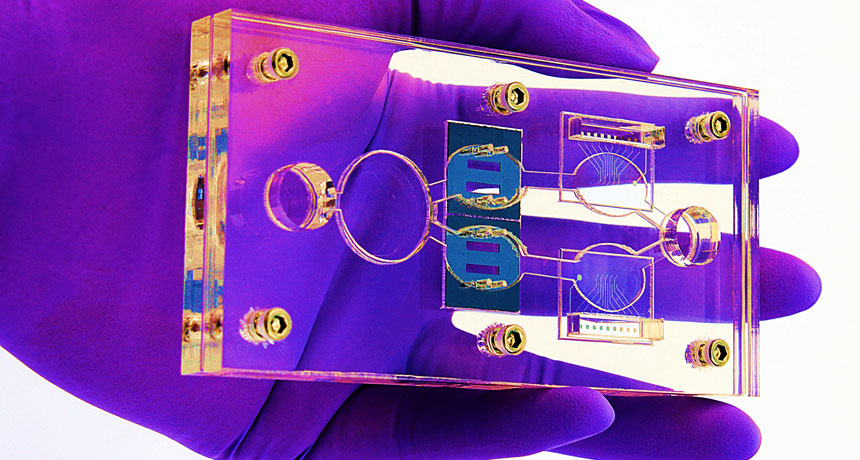One of the main ethical controversies in the world of drugs is human testing, necessary for research but also with possible adverse results for those who agree to be test subjects for remuneration.
A future where they risk less could be possible with a chip to study the reaction of drugs in humans.
Read at UNAM Global:
Unlike “organ-on-a-chip” devices (you can see the edit 05/07/17 Y 14/09/18) traditional simulating a single organ, the new configuration contains five chambers to house different types of cells, connected by channels in which a nutrient solution circulates to mimic blood flow.
This is the first multi-organ system on a chip to examine how a drug and its chemical derivatives affect target cells (the cells where the drug is targeted) and other tissues at the same time, researchers report in the online publication. Science Translational Medicine.
"Until now, to be able to measure efficacy and toxicity in the same system, you have to use an animal model," says James Hickman, an engineer at the biotech firm Hesperos in Orlando, Florida, who developed the chip.
This system, using human cells, would be able to measure the effects of drugs more precisely, Hickman says. Using a patient's own cells in the device can also allow scientists to test different drugs or drug combinations to determine the best treatment for that specific person, as each person's body may respond differently.
Hickman and his colleagues in their paper demonstrated the effects of different drugs on cancer cells, at the same time on heart and liver cells. They, in their device with bone marrow cancer cells, introduced the drugs imatinib Y diclofenac and with this they stopped the growth of cancer, but they observed how diclofenac also destroyed liver cells.
In another preparation, the medicine tamoxifen killed breast cancer cells, it also attacked drug-resistant vulvar cancer cells (a rare type of cancer that forms in the external genitalia of women), this was achieved only when administered together with the drug for blood pressure verapamil.
These experiments confirmed the findings of previous clinical trials of anticancer drugs. That indicates that the device can expose the beneficial and harmful effects of medications, and help to adjust dosages, without the need for a test subject.
Fountain: Science news













No Comment